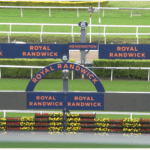A high-end London casino is turning facial recognition into a luxury service. Les Ambassadeurs (or Les A for short) caters exclusively to elite customers who can afford a £25,000 ($31,340) membership fee, many of whom are billionaires, celebrities, and even royalty from all over the world.

Guests of that stature are accustomed to a more personalized level of service, and Les A is trying to deliver that with facial recognition. In doing so, it is repurposing security cameras that were initially installed to prevent fraud. Facial recognition has been deployed in casinos all over the world to help spot blacklisted players, and since 2018 Les A has utilized Oosto’s facial recognition tech for that exact purpose. The solution scans the faces of each player who enters the facility, and cross-references those images with an internal database of barred individuals to make sure that people who are not welcome cannot sit down at the tables.
However, cheating is less common at an exclusive venue like Les A, whose roughly 20,000 members have all registered and paid for the privilege. With that in mind, Les A is now using facial recognition to identify VIPs when they enter the building. The system sends a notification to Les A employees through the Wickr chat app when a player arrives, and assigns them a ranking (between one and 10) that corresponds to the level of preferential treatment that that player should receive. The staff can then coordinate to take the appropriate response.
The Les A deployment is noteworthy due to the way that it reframes the surveillance debate. Privacy advocates have argued that surveillance cameras invade on people’s privacy, and can lead to bias and discrimination if used improperly. Les A, on the other hand, is marketing it as a feature, albeit to an exclusive clientele in one venue rather than the general public.
The news nevertheless suggests that people might be willing to accept large-scale surveillance if it comes with meaningful convenience benefits, though there are likely to be limits about how far that extends. Only 10 of Les A’s 400 cameras are outfitted with facial recognition, and the system does not extend to bathrooms or the public exterior of the building. Administrators also stressed that they do not use eye tracking or any other kind of mood detection or analysis, explaining that such systems would infringe on customer autonomy.
Having said that, not every institution has displayed the same level restraint of Les A. Casinos in Macau have used behavioral analysis to try to identify players who are willing to spend, while China has used biometric tech to make sure people are paying attention at school and at work. The fact that Les A’s use of facial recognition is palatable to members does not necessarily mean that the same is true for those who have not opted in.
On that note, Oosto has been an advocate for the ethical use of facial recognition. The company has repeatedly spoken out against Clearview’s large-scale data collection and identification practices, while simultaneously arguing that surveillance can be a helpful security tool in private commercial settings.
Source: Bloomberg
–
May 26, 2022 – by Eric Weiss








Follow Us